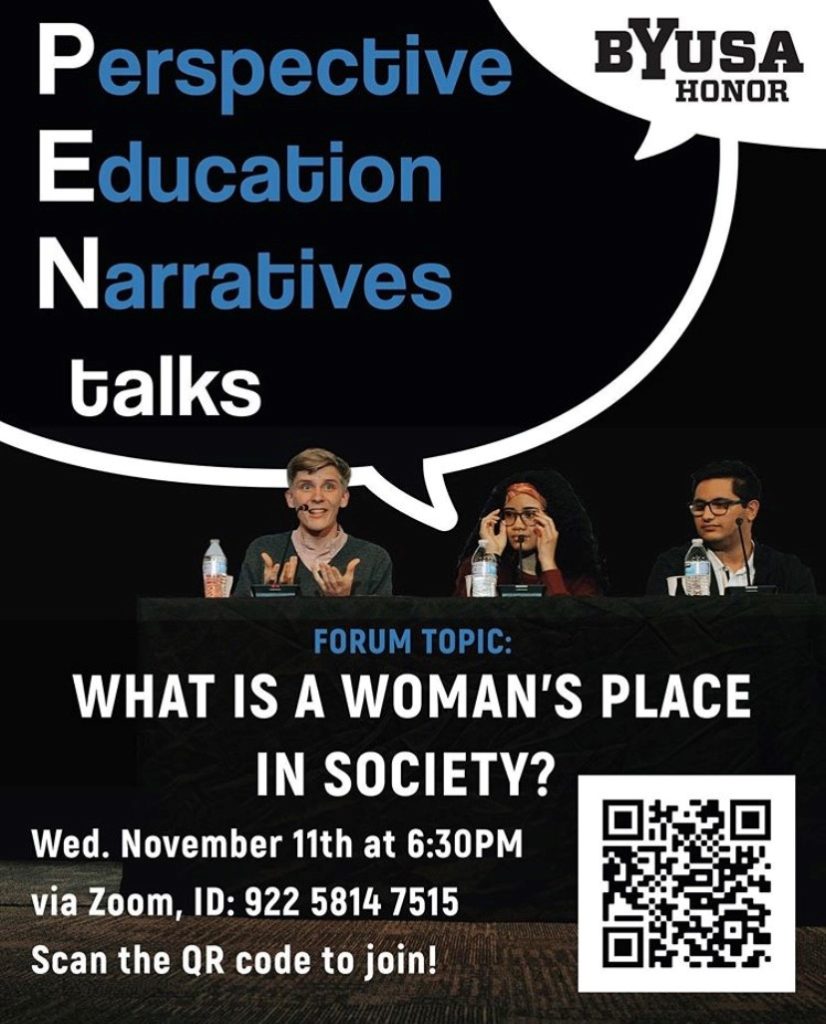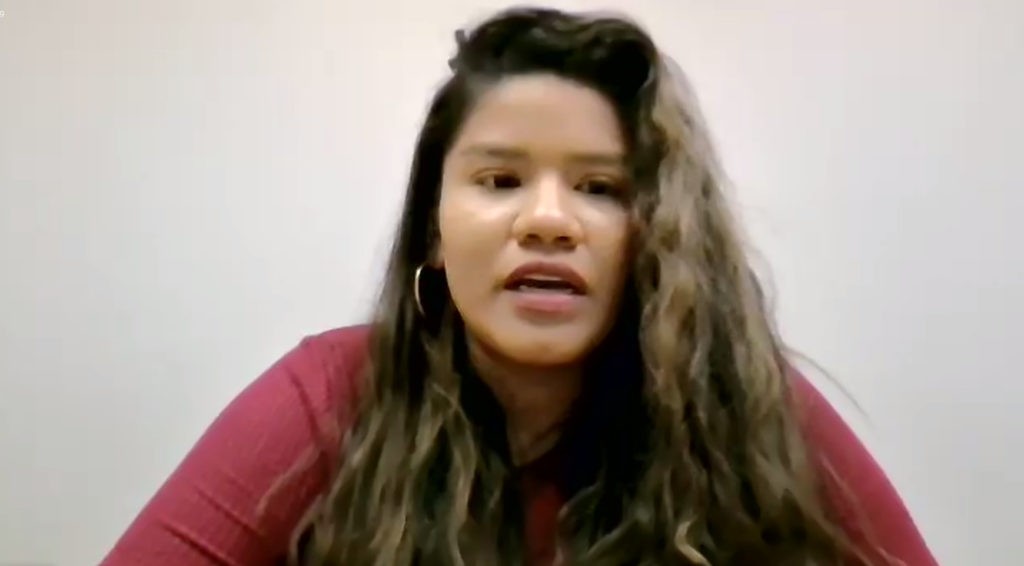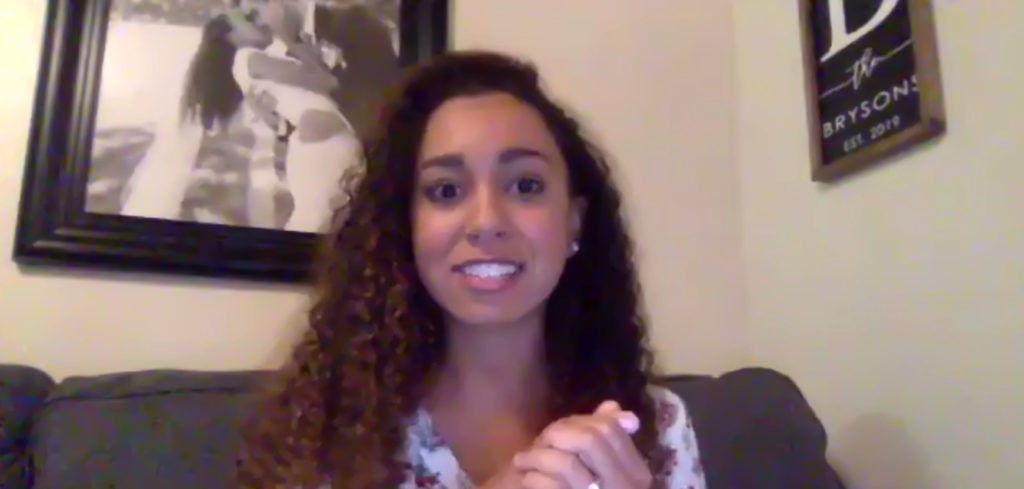
BYU student panelists said women should be themselves and make their voices heard at a BYUSA PEN Talk Nov. 11.
The goal of PEN Talks is to provide an inclusive experience for students and promote a campus culture of civility and understanding. This forum “What is a Woman’s Place in Society?” focused on the expectations Church culture places on women and the need for more representation.
One obstacle to being themselves women face in the Church is the expectation to be meek and reserved. “It’s almost like being seen and not heard in the Church,” panelist Rachel Weaver said.
Women are looked down on if they’re more outspoken, especially while dating, she said, adding that this expectation gives her stress because she’s not that way at all.
Panelist Giardely Baca said she didn’t experience this expectation growing up until she joined the Church. “Like Rachel, I quickly realized that the Church wanted me to be something that I wasn’t. It wanted me to be quiet, calm, collected — which are good things, it’s just not who I am.”

Another expectation comes from The Family Proclamation’s guidance for women to “nurture” their children. Panelist Madison Roush said Church members shouldn’t interpret this role specifically and narrowly because it doesn’t give women the space to be themselves.
People who choose to be a stay-at-home parent or work outside the home are both doing full-time jobs, panelist Logan Iosefa-Belnap said. “Just support your partner in whatever way you can.”
Panelist Ruth Bryson added that there isn’t one right or wrong way to be a woman. “At the end of the day, God’s going to be proud of us — whatever we accomplish, as long as we’re doing something that is good and uplifting and makes the world a better place.”

Panelists also discussed the importance of women finding their voices and how a lack of representation can make that difficult.
“Representation matters,” panelist Amanda Galán-Vintimilla said. She didn’t always think that way because everyone looked like her in Ecuador. She said she experienced issues with her image when she moved to the United States.
“There’s not a lot of women represented in the Church as leadership. And that is really, really hard. Because we don’t know what we can be until we see it,” Galán-Vintimilla said. It was really special to her when Sister Reyna I. Aburto was called to the Relief Society General Presidency.
“I saw a woman that looked like me and talked with the accent that I was sometimes ashamed of,” she said. “That meant the world to me.”
Women can also make their voices heard through Church callings. Weaver said it bothers her that no matter what position a woman has in the Church, a man always has the final say. She said women don’t want to take the priesthood from men but rather to feel valued.
“I think women in the Church just want to feel like their opinion and their experience matters at the same capacity that a man’s opinion and experience matters in the Church,” she said.
She mentioned how LDS mission presidents have two male assistants — Assistants to the President (APs). They go everywhere and it’s a very coveted assignment in some missions. “They pretty much help run the mission with the mission president.”
There’s no female equivalent to being AP on the mission, Weaver said. Her second mission president changed things up and created a “Head STL (Sister Training Leader)” position where the Sisters had the same opportunities as the APs.

In addition to expectations and representation, panelists also brought up sexual violence and the victim-blaming associated with it.
It’s painful not to be believed, Iosefa-Belnap said, adding that the audience should treat everyone with respect and kindness. “You know someone who is a victim.”
Some resources for sexual violence victims on BYU campus include CAPS, the Title IX Office and Women’s Services & Resources.




